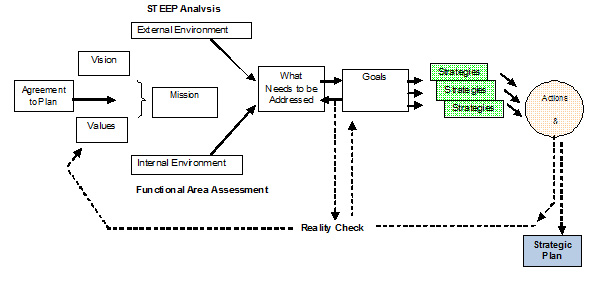Organizations that fail to develop and implement a strategic plan typically end up in a weak competitive position characterized by low productivity, conflicting organizational arrangements and inconsistent motivational drivers. In contrast, the emphasis placed on formal planning processes within leading organizations is indicative of the significant benefits that can be derived when policies and actions are coordinated and directed toward a common set of objectives. Essentially, developing a competitive strategy requires a broad definition of how an organization will compete, identification of specific goals to be targeted, and an outline of the policies and practices required to achieve these goals. Strategic planning is an organization's process of defining its direction and allocating its resources in pursuit of the strategy. To determine the direction of the organization, it is necessary to understand its current position and the possible avenues through which it can pursue a particular course of action.
Our approach to strategic planning combines the collective knowledge of our multi-disciplinary team of aquaculture experts with the robust analytical procedures of the SWOT-Plus Analysis and the more conventional five-phase approach to situational assessments. Working closely with our clients, we identify the fundamental underlying issues to be addressed and develop innovative solutions that strengthen their initiatives. If necessary, we are able to assist by bringing in additional expertise to facilitate implementation, including provision of short-term management to assist with the critical transition phase and change management.

